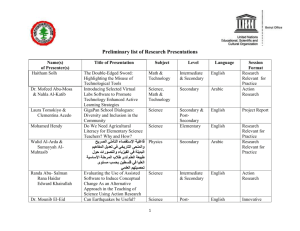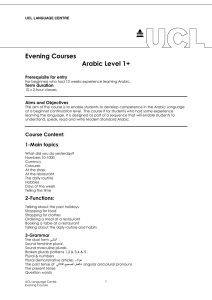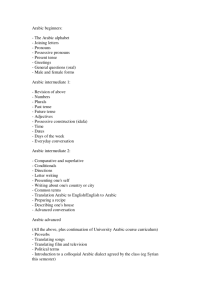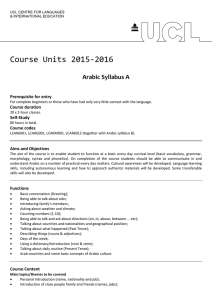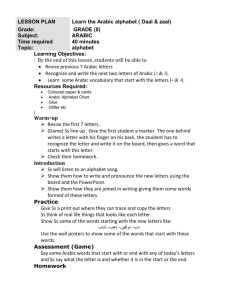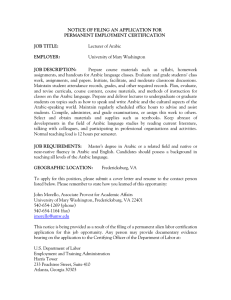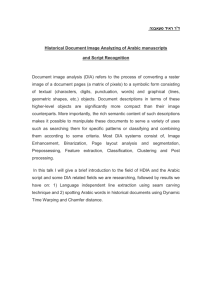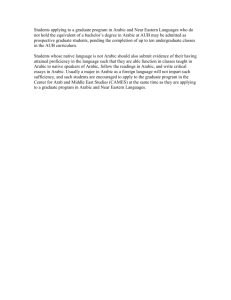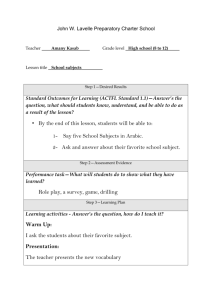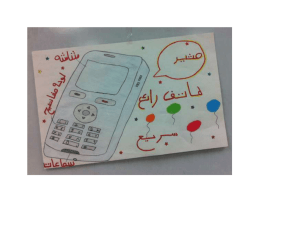A Checklist for Arabic Speakers Writing English
advertisement
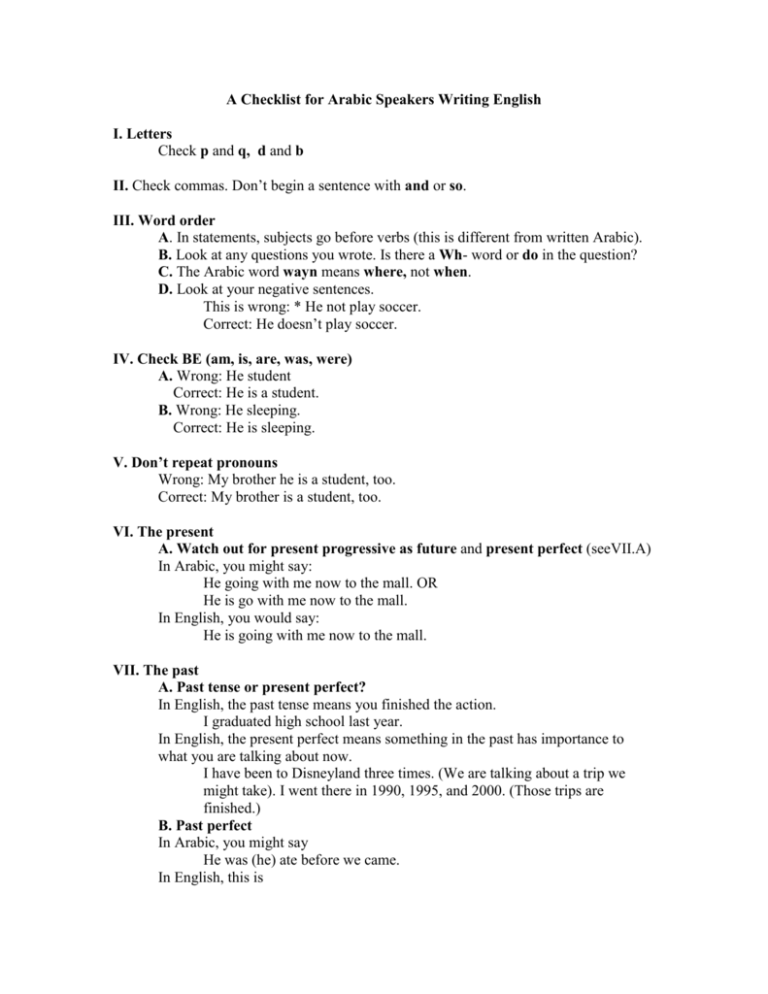
A Checklist for Arabic Speakers Writing English I. Letters Check p and q, d and b II. Check commas. Don’t begin a sentence with and or so. III. Word order A. In statements, subjects go before verbs (this is different from written Arabic). B. Look at any questions you wrote. Is there a Wh- word or do in the question? C. The Arabic word wayn means where, not when. D. Look at your negative sentences. This is wrong: * He not play soccer. Correct: He doesn’t play soccer. IV. Check BE (am, is, are, was, were) A. Wrong: He student Correct: He is a student. B. Wrong: He sleeping. Correct: He is sleeping. V. Don’t repeat pronouns Wrong: My brother he is a student, too. Correct: My brother is a student, too. VI. The present A. Watch out for present progressive as future and present perfect (seeVII.A) In Arabic, you might say: He going with me now to the mall. OR He is go with me now to the mall. In English, you would say: He is going with me now to the mall. VII. The past A. Past tense or present perfect? In English, the past tense means you finished the action. I graduated high school last year. In English, the present perfect means something in the past has importance to what you are talking about now. I have been to Disneyland three times. (We are talking about a trip we might take). I went there in 1990, 1995, and 2000. (Those trips are finished.) B. Past perfect In Arabic, you might say He was (he) ate before we came. In English, this is He had eaten before we came. C. Past progressive In Arabic, you might say He was (he) eats when the phone rang. In English, this is He was eating when the phone rang. VIII. Be careful of “that” Don’t use that with modal verbs (can, should, etc.) In Arabic, you could say: * I can that I go. In English: I can go. IX. Check passive voice Form: BE + Verb + ed He wrote the book. = The book was written by him. X. Check all the articles. A. Check “a” This is a book. B. Don’t use “a” with plurals. Wrong: This is a books. C. Check “the” especially in possessives. Wrong: Book the teacher Correct: the teacher’s book D. NO “the” before 1. cities or countries (except the U.S.) Wrong: the Youngstown Wrong: the France 2. months Wrong: the July XI. Adjectives go before nouns the smart student XII. Add “s” for plurals He has two sisters. Se has two sisters and three brothers.


